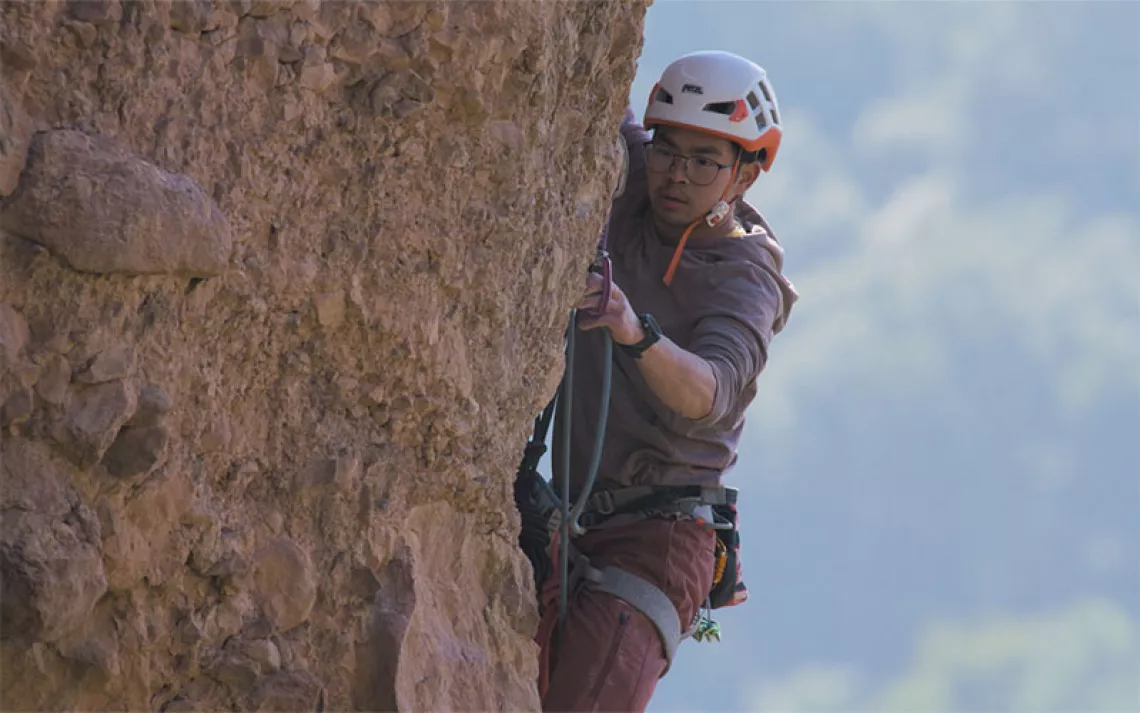Time for Pro Sports to Ditch Plastic
Reusable bottles and hydration stations are replacing throwaway plastic

Photo by roibu/iStock
Even in the greenest cities in the United States, sporting events are sure to feature the distribution of tens of thousands of single-use plastic water bottles. Bottled water has become the top-selling beverage in the United States (passing soda in 2016), and sports fans are guzzling it down. According to Waste Management, each year the country's top 200 stadiums draw more than 180 million visitors, and “the NFL, MLB, NBA, and NHL generate a combined 35,000 metric tons of CO2 each year from their fans’ waste.” Add to that college sports—NCAA reported 36 million–plus for college football Saturdays alone last season. Add to this basketball, track and field, soccer, baseball, high school sports, with each venue’s concessions relying heavily on disposable single-use plastics.
Worldwide more than a million plastic bottles are produced every minute. Last year, according to Bloomberg BNA, 55 billion water bottles were made in the U.S. alone. According to the EPA and the journal Science Advances, less than 10 percent of all plastic is recycled.
To their credit, many teams have started recycling on a large scale. In 2017, the Seattle Mariners recycled 96 percent of Safeco Field waste. While laudable, recycling should remain the last option. The real solution lies in changing consumer habits so as not to produce the waste in the first place.

Photo by Aaron Skirboll
Sports waste is a vast problem, but the solution to the plastic water bottle scourge is readily available: Water bottle refill stations (also known as hydration stations) are essentially modernized water fountains, featuring a single or multiple faucets. And they're poised to play a big role in the sport venues of the future. Many are already making the switch.
The feasibility of water-refill stations at sporting events was displayed at the 2017–18 Volvo Ocean Race, “The World’s Toughest Sailing Event,” which has been held every three years since 1973. For the latest race, Volvo partnered with Stockholm-based Bluewater Group to provide hydrations stations and purified drinking water at the international yacht race's 12 stopovers, in cities like Lisbon, Newport, and Capetown. Single-use plastic water bottles were discouraged in race villages.
Bluewater deals in drinking-water-purification technology, using the process of reverse osmosis to make dirty or contaminated water, even seawater, potable. “We have a vision that we would like water without plastic," Bluewater president Anders Jacobson told me. "That means, for us, oceans without single-use plastic bottles and other plastics, and drinking water without microplastics.”
At the Volvo Race, Bluewater used four hydration stations in the various race villages, with each station set up to provide 7,000 gallons of water a day, or the equivalent to 55,000 single-use 16-ounce plastic bottles. “We saw a massive reduction in the use of single-use plastic bottles at the 12 stopovers," says Robin Clegg, the Volvo Race’s sustainability communications manager. "We avoided the use of 388,207 in total."
Society’s plastic bottle addiction is about more than the waste, says Jacobsen. Often overlooked is the transportation of bottled water to stadiums and stores. Production and transport of the bottles together requires 60 million barrels of oil a year.
Today, says Timothy Kellison, director of the Center for Sport and Urban Policy at Georgia State University, “we see more and more water stations at arenas and stadiums, particularly at the college level." South Carolina, Arkansas, Georgia, Memphis, and Oregon are just a few of the universities that offer water-refill stations at their stadiums. “While these initiatives won’t lead to a bottle ban overnight," he says, "they can be used to educate fans and nudge slow but meaningful behavioral changes.”
Many colleges large and small now furnish incoming students with reusable water bottles to use during their collegiate career. Coastal Carolina University has a total enrollment of 10,663 students and 88 refill stations on campus. The university boasts 2.7 million bottles saved to date. In California, the Rethink The Drink initiative by the Community Environmental Council has provided hydration stations to more than 50 schools along the state’s central coast, forestalling the use of nearly 4 million bottles.
If fan demand dictates, the trend could spread to pro sports arenas and stadiums. Already, Coke (Dasani) and Pepsi (Aquafina) are working on pilot projects for automated self-serve water stations. "I do think that refill stations with filtration is the wave of the future for all public spaces,” says Miriam Gordon, policy director at Upstream. The question is when will America’s major sports teams get on board.
 The Magazine of The Sierra Club
The Magazine of The Sierra Club



